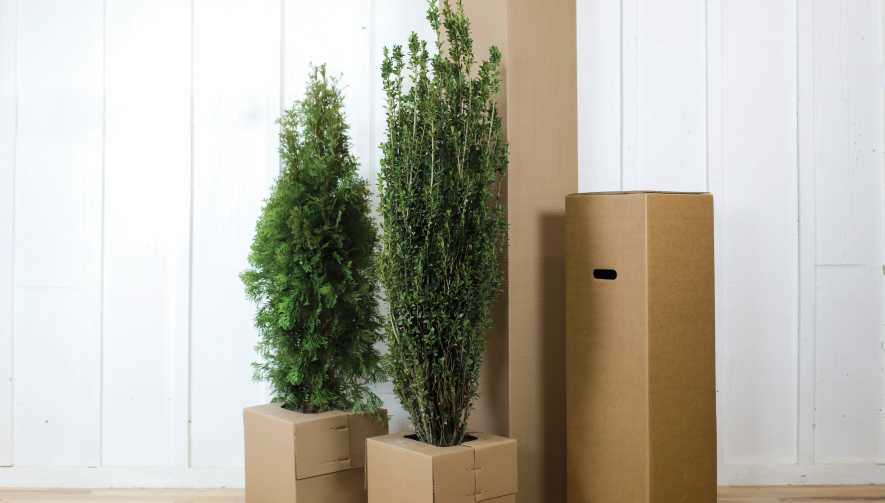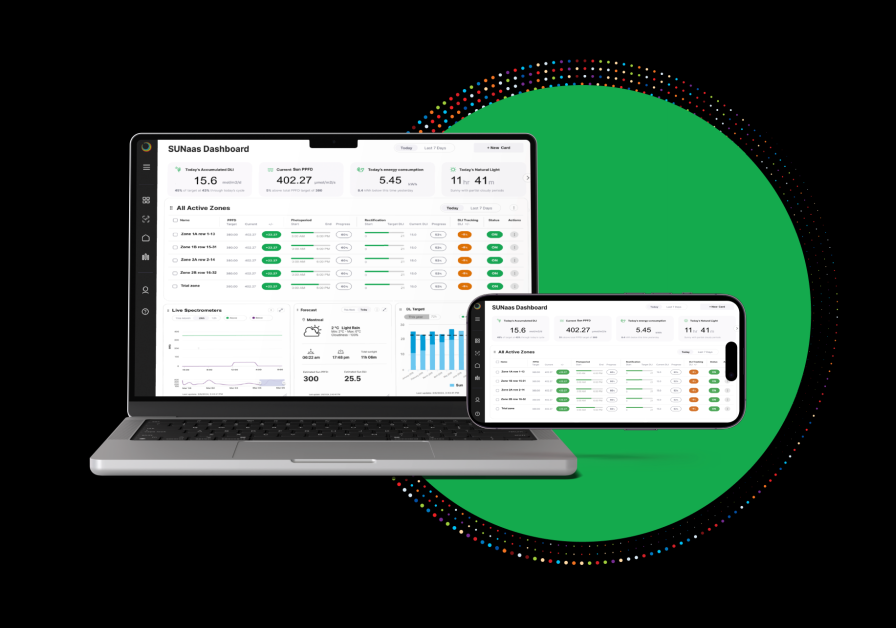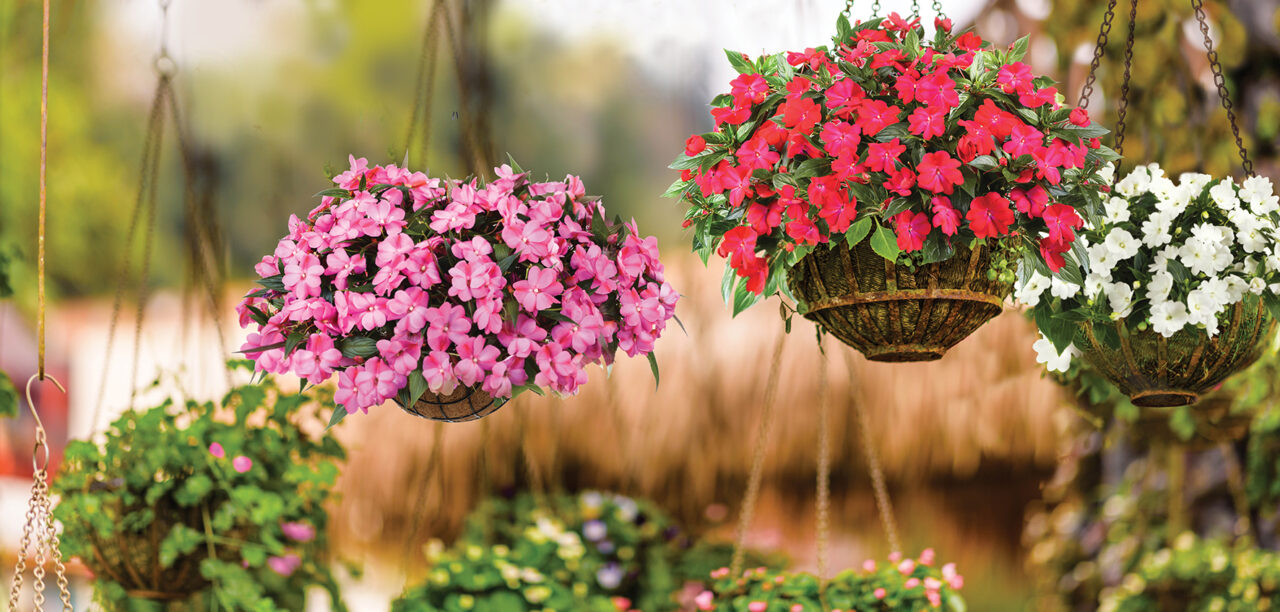New E-Commerce Resource Aims to Ensure Shipment of Disease-Free Plants

Plant Sentry is designed to ensure that e-commerce vendors grow and ship only plants that are fully compliant with the regulations and restrictions of the 48 states in the continental U.S.
Demand for boxwood plants is at an all-time high, with USDA’s National Agricultural Statistics Service estimating the value of U.S. boxwood production at more $126 million. However, a recent outbreak of boxwood blight (Calonectria pseudonaviculata) is devastating the supply of plants. This disease is also revealing flaws in an e-commerce system that struggles to enforce regulations designed to prevent diseased and invasive plants from being shipped to customers throughout the U.S.
“When shipping live plants, the U.S. is not a single nation — it’s a collection of 50 independent states,” says Jeff Dinslage, President of Nature Hills Nursery and NatureHills.com, a leading e-commerce seller of trees, shrubs, and perennial plants (Nature Hills was one of several companies featured in Greenhouse Grower’s “How You Can Tackle Online Plant Sales” February 2018 cover story). “Each state has its own set of rules and regulations that prevent diseased plants, pest-infested plants, and invasive plants from being shipped into each respective state. In addition, there are federally quarantined pests that are governed by specific federal regulations that manage interstate movement.”
Not only does each state have its own set of rules and regulations, but those protocols are constantly changing. Boxwood, for example, was on the safe-to-ship list of most states until recently. But with the spread of boxwood blight, the state of Tennessee now prevents the shipment of boxwoods into the state without a costly phytosanitary inspection certification. As a result, Nature Hills Nursery has stopped shipping boxwoods to customers in Tennessee, and other e-commerce vendors may be ignoring the rules by shipping non-inspected plants.
In fact, the ever-changing nature of live plant regulations makes it nearly impossible for companies both large and small to ship only approved and compliant plants — especially when there is a different set of rules for every state.
“It’s extremely difficult to follow all of the rules and restrictions,” Dinslage says. “We are aware of plants being shipped by e-commerce vendors in our industry that are not compliant in every state.”
Plant Sentry Compliance System
In response to the challenges presented by a flourishing e-commerce marketplace for live plants, Nature Hills Nursery has developed a comprehensive plant compliance system called Plant Sentry. This new program is designed to ensure that e-commerce vendors grow and ship only plants that are fully compliant with the regulations and restrictions of the 48 states in the continental U.S.
“At Nature Hills, our intention is to be proactive and completely compliant,” Dinslage says. “Our Plant Sentry system makes it possible to meet the stringent growing, inspection, and audit requirements for plants in every state, thereby protecting against the spread of plant diseases, plant pests, invasive plants, and other threats to plant health and environmental safety.”
According to Dinslage, the Plant Sentry Compliance System was inspired by the SANC (Systems Approach to Nursery Certification) program, which was developed under the guidance of the National Plant Board, AmericanHort, USDA’s Animal and Plant Health Inspection Service, and other green industry leaders.
National Database
To create the Plant Sentry program, Nature Hills Nursery created a comprehensive national database for plant compliance. This database includes the plant regulations and restrictions of the 48 continental U.S. states, and it is continually updated.
State rules are examined to determine which plants cannot be sold in each specific state, and updates are entered into the database. Grower agreements between Plant Sentry and each nursery ensure that all rules and regulations are being followed at all times. The Plant Sentry Compliance Officer works closely with NatureHills.com and each nursery or fulfillment center to ensure only compliant plants are sold and shipped to customers. Likewise, the Plant Sentry Program, through the Compliance Officer, utilizes state certification programs to ensure that plant material is free from significant nursery pests.
The Plant Sentry system also includes a shipment certification program. Proprietary e-commerce software prevents the shipment of a restricted plant to each state. Each online order is automatically reviewed to remove any restricted plants based upon the customer’s zip code, thus guaranteeing that only compliant plants are shipped.
In the unlikely event that a restricted plant is shipped, a robust recovery and emergency communications plan is implemented. The state and customer are notified so that proper procedures can be followed for the return or destruction of the non-compliant plant material.
Additional proactive procedures are in place to achieve full compliance. On-staff horticulturists review all online plant descriptions to ensure the information presented is complete and accurate. Horticulturists also make nursery inspections to ensure plant health and safety and work with state inspection agencies to utilize state certification documentation. In addition, horticulturists assist the Customer Service Department to answer questions about plant care and choosing plants that are appropriate in each state.
“At Nature Hills Nursery, we are fully committed to providing our customers with healthy plants that are appropriate for their area,” Dinslage says. “We are committed to shipping only plants that are non-invasive and free of insect pests and diseases and are fully compliant with state and federal requirements.
“In order to achieve the highest standard of plant health, quality, and compliance, we had to design our own system to make sure all of our plants have been inspected and plants are not being shipped to customers in areas where those plants could become invasive,” Dinslage says. “We even created an auditable manual with emergency response procedures to deal with every possible contingency. We are taking everything we have learned and all of the systems we have developed to create the Plant Sentry compliance program, which can then be utilized by other nursery e-commerce companies.”
The Plant Sentry Compliance System is currently used exclusively by Nature Hills, but the program will be available to other e-commerce shippers of plant material in Fall 2018.
“We intend to brand Plant Sentry as a name that nursery growers and consumers alike can trust,” Dinslage says. “When you buy a Plant Sentry-approved plant from a nursery, a retailer ,or an e-commerce vendor, you are buying a plant that complies with all state and federal rules and regulations. You can be sure that your plants are healthy and you’re not contributing to the spread of pests or diseases.”










